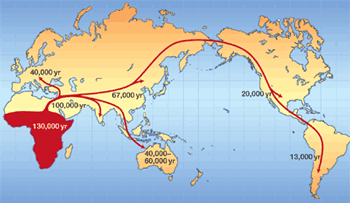Mitochondria are the focus of new research on Alzheimer’s, Parkinson’s and diabetes
Two decades before the human genome was sequenced, a human mitochondrial genome was sequenced. Mitochondria are the indispensable energy producers of human cells who live outside the nucleus and have their own DNA, genes and proteins. The mitochondrion sequenced in 1981 became known as the Cambridge reference sequence and has been used extensively in research. A few years ago, scientists re-sequenced the DNA to eliminate minor errors. ...
A team led by MitoKor scientists built the database to discover mutations in mitochondrial DNA associated with human diseases and develop novel therapies. The loss of energy production can be disastrous for cells and has been blamed for a range of disorders. The MitoKor team aims to discover risk factors for Alzheimer's, Parkinson's and adult-onset diabetes, among other diseases, by comparing mitochondrial DNA from patients and healthy individuals.
"We will use the database to look as definitively as one can at the role of mitochondrial DNA in several of the major diseases," says Neil Howell of MitoKor, who led the study. Making the connection between mitochondrial DNA and neurological disorders that occur late in life will not be easy, Howell adds.
I found this map completely fascinating. If this is accurate, humans have been in Europe 20,000 years longer than in North America.
Relative to the human genome with its three billion letters of DNA, the human mitochondrial genome is tiny—about 16,500 base pairs long. ... The origin and dispersal of modern humans, Homo sapiens. The time of origin of modern humans is not well known but may have been about 200,000 (130,000-465,000) years ago. New evidence from mitochondrial genomes bolsters the hypothesis that the place of origin was sub-Saharan Africa and that the dispersal from Africa occurred within the past 100,000 years. The earliest known fossil and archaeological evidence on each continent, shown on the map, is consistent with this view.
©Nature - gnn
Some of my religious friends think scientists only believe humans evolved due to the few "missing link" fossils. Not true. The fossil record is a great reason, but there a number of others: comparative anatomy, geographical distribution and migration over time of species, the universal nature of biochemical organization, computer models and observation of the occurrence of new species.

No comments:
Post a Comment